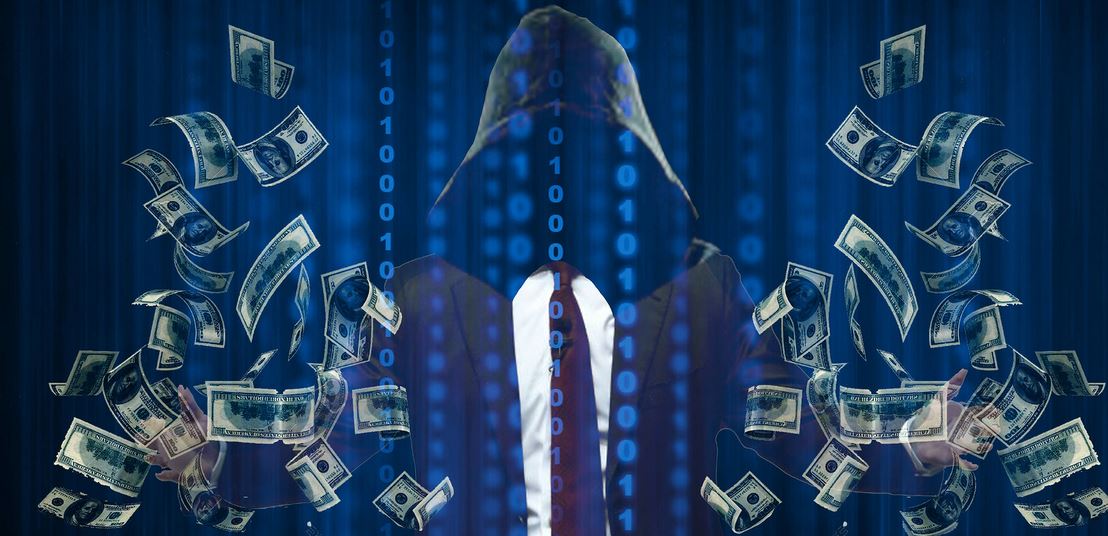Identity theft is a big business for crooks. One of the most common ways these kinds of thieves get access to your personal information and your personal finances is through “bank scams.”
Here are five of the most common bank scams you need to be on the lookout for and never fall prey to!
1. Phishing Scams
Other than an actual hack into your accounts, a “phishing scam” is the number one way identity thieves gain access to your personal financial information. In a phishing scam, the thieves use texts and emails that appear to come from a trusted source in order to trick individuals into giving up personal information. The information they want includes passwords, Social Security numbers, bank account numbers, and more. Their goal is to gain access to your personal accounts, such as your bank and other financial accounts.
Phishing scams are a popular bank scam because of the accessibility of reaching large numbers of people through email and text messages. The FBI reported that Americans lost more than $57 million in phishing scams alone in 2019. Know that your personal financial information will never ask you for your account numbers or passwords. They already have that information. The IRS NEVER asks for any personal information via email. They will always contact you by mail first. The FBI says to also look at emails that are poorly worded or are addressed to “Dear Customer” instead of your actual first and last name. These are red flags for phishing emails.
2. Check-Cashing Scams
This scam is not a way to steal your ID, just a way to get quick cash and hold YOU responsible! This scam preys on your compassion and willingness to help out a stranger in need. An individual approaches you outside of a bank or other financial institution asking if you will cash a check for them. They will usually say that they do not have an account in the bank or enough money to cover the check.
This is extremely prevalent now during COVID-19. The scammer will say they are out of work and this money was sent by a family member or something. They then ask you to deposit the check in your account and take money out to pay the scammer. To make it seem more legit, they may say to give them 25.00 or 50.00 less the amount of the check for your “generosity.” But when the check turns out to bounce in a day or so, the bank will hold YOU responsible for the amount of the check!
3. Automatic Withdrawal Scams
You probably love the convenience of automatic withdrawals to pay your bills and automate your savings. Scammers love them too! In this scam, the scammer tells you that you have won some kind of prize. In order to receive it by direct deposit into your banking account, he needs the routing number and account number.
Once the scammer has that info, they put it on demand draft, as if you owe the scammer that money. Demand drafts are processed like a check but do not require a signature. Upon receiving the demand draft, your bank transfers the money from your checking account to pay the scammer. Unless you pay close attention to your daily bank transactions, you may not notice the scam until it’s too late!
4. Posing as Government Officials
This is a quite common scam that especially preys on the elderly. You will get a call from someone claiming to be from the IRS or other government agency like the “Treasury Department.”
They will say you owe back taxes and could face fines or even jail if you do not pay up. They ask for your bank info to automatically withdraw the money you owe. Some scammers will add an air of legitimacy and ask you to make out a check to the “IRS.” When they receive it, they can cash it because they have a registered business name such as the “Irving’s Registry Service,” and they can cash checks made out to “IRS!” Do not fall for this scam. NO government agency makes collections calls or emails like this.
5. Employment Scams
Employment scams are another bank scam that scammers use to steal your financial information. In this scam, the crook offers you work but needs to charge an upfront fee to your bank account, or they say they need your bank info to transfer commission payments to you. But this is all just to your bank account information. This scam, too, is becoming increasingly common as people are desperate for work during the COVID-19 pandemic. The FBI warns that job scammers are even posting false jobs to popular job search websites.
The best way to avoid these and other banking or identity theft scams is to trust your guts. If something sounds too good to be true or smells “phishy” in an email or phone call involving your bank accounts or personal finances – you are probably right! Never ever give your bank account info to any questionable sources. Always follow up directly with your bank, credit card company, or other financial institution if you get an email or phone call that sets off any warning bells.

